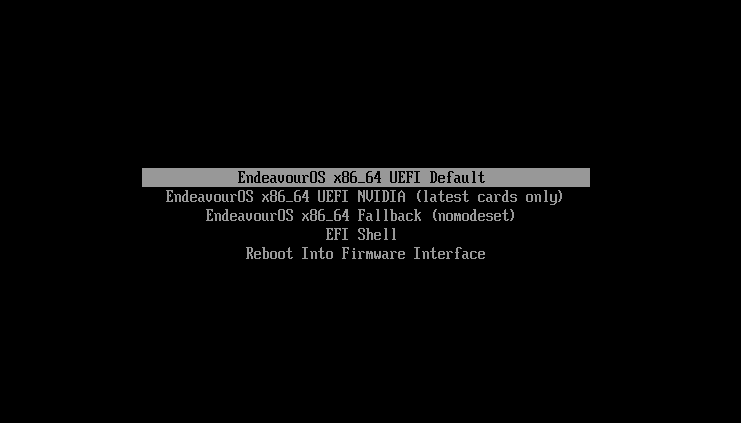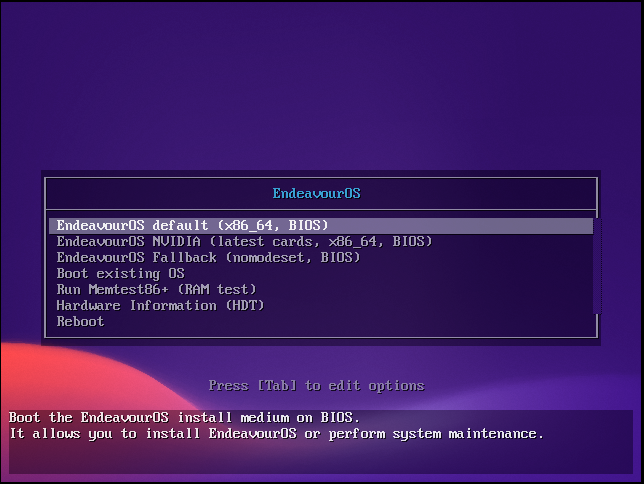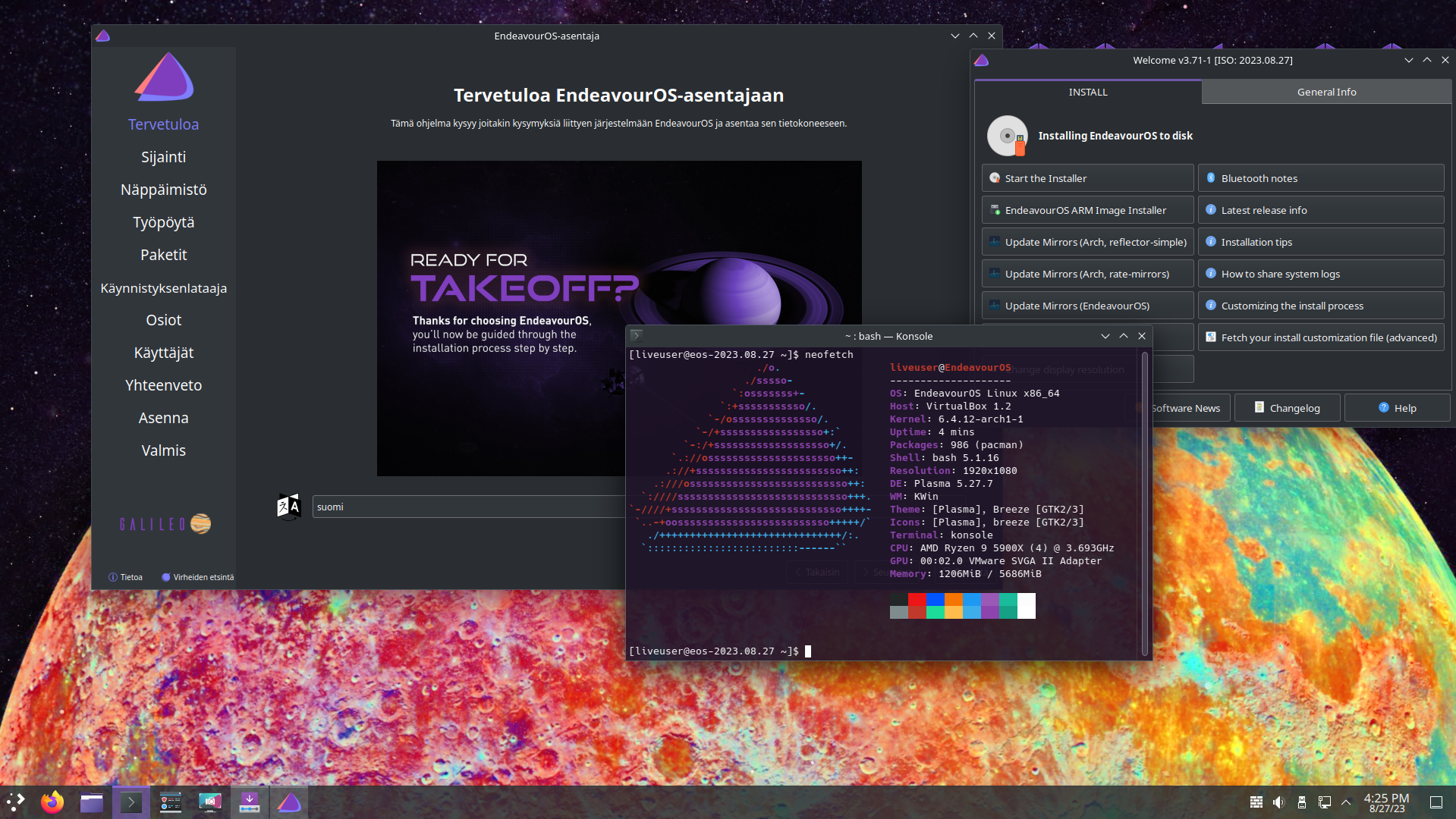main branch is development latest (unstable)
- joekamprad
- manuel
- fernandomaroto (initial developer)
..and our beloved community
This ISO is based on hugely modified Arch-ISO to provide Installation Environment for EndeavourOS.
More info at EndeavourOS-GitHub-Development
Our journey wouldn't be made possible without the generosity of our Open Collective community!
- EndeavourOS-ISO source (Live environment with KDE-Desktop)
- Calamares {EndeavourOS fork} (installer framework)
Systemd-boot for UEFI systems:

Bios-boot (syslinux) for legacy systems:

You need to use an installed EndeavourOS system or any archbased system with EndeavourOS repository enabled.
As the installer packages and needed dependencies will get installed from EndeavourOS repository.
General information:
https://endeavouros-team.github.io/EndeavourOS-Development/
Read the changelog before starting to learn about latest changes:
https://github.com/endeavouros-team/EndeavourOS-ISO/blob/main/CHANGELOG.md
sudo pacman -S archiso git squashfs-tools --needed
It is recommended to reboot after these changes.
If you want the last release state to rebuild the ISO, you need to use a specifically tagged tarball from here: https://github.com/endeavouros-team/EndeavourOS-ISO/tags
If not, it will default to using the latest "unstable" development state.
example using latest stable release (23.11.1.2 Galileo KDE Release)
Warning: do not use the zip tarball, in case this causes issues with symlinks.
wget https://github.com/endeavouros-team/EndeavourOS-ISO/archive/refs/tags/23.11.1.2.tar.gz
tar -xvf 23.11.1.2.tar.gz
cd "EndeavourOS-ISO-23.11.1.2"
./prepare.sh
git clone https://github.com/endeavouros-team/EndeavourOS-ISO.git
cd EndeavourOS-ISO
./prepare.sh
If that you can use older tags like:
wget https://github.com/endeavouros-team/EndeavourOS-ISO/archive/refs/tags/22.12.2.tar.gz
tar -xvf 22.12.2.tar.gz
cd "EndeavourOS-ISO-22.12.2"
./prepare.sh
But caused by the change to KDE these iso will use XFCE4 LiveSession and you will need to build calamares manually to get old style theming that is setup for the XFCE4 LiveSession:
using this PKGBUILD: https://raw.githubusercontent.com/endeavouros-team/PKGBUILDS/18e3f580abb68486091492168956619bb0f32abe/calamares/PKGBUILD
And put the resulting package into ISO structure to get installed with the ISO build procedure:
airootfs/root/packages/
To get this working you need to remove calamares from packages.x86_64 before starting ISO build.
sudo ./mkarchiso -v "."
or with log:
sudo ./mkarchiso -v "." 2>&1 | tee "eosiso_$(date -u +'%Y.%m.%d-%H:%M').log"
To install locally built packages on ISO, put the packages inside the following directory:
airootfs/root/packages
Packages will be installed and the directory will be cleaned up after that.
Example:
EndeavourOS_Galileo-Neo-2024.01.25.iso
EndeavourOS_RELEASENAMEREBUILD-YYYY.MM.DD.iso
- YYYY.MM.DD: of the release
- REBUILD: (empty), -Neo, -Nova

